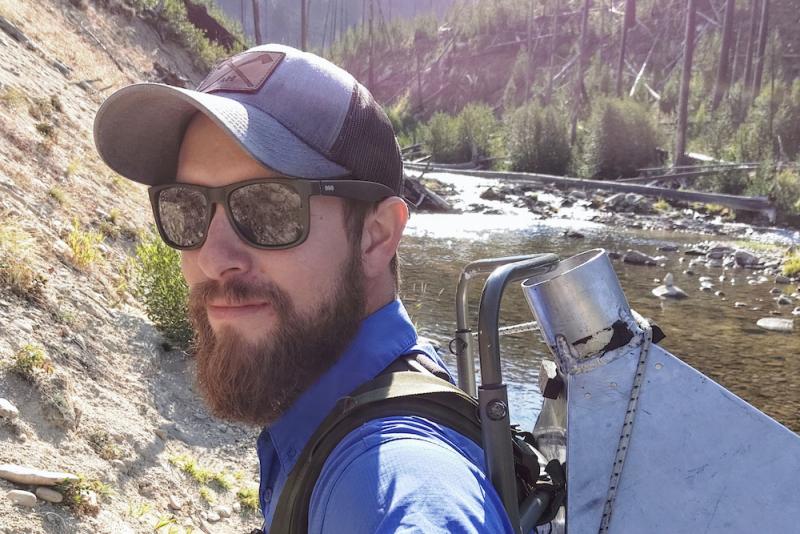From Military Service to Finding a Mentor
I served nearly 5 years in the United States Army as a Specialist and an Infantry Team Leader. However, three surgeries and grueling physical therapy took their toll. My injuries ultimately led to a new focus in life, and I separated from the service in April 2018.
I decided I needed a career change and returned to college to study fisheries, a field I have been truly passionate about since I was a kid. While working on my fisheries education, I was fortunate to meet a friend who introduced me to Anna Kagley, fish biologist with the Fish Ecology Division at NOAA’s Northwest Fisheries Science Center. She would go on to become my mentor and supervisor.
A New Beginning with the Veterans Conservation Corps Program
At first, while still in college, I volunteered to join Anna on a handful of nearshore beach seining research days. Through this experience, I learned about the NOAA Veterans Conservation Corps Fisheries Internship Program. I applied, was accepted, and officially began the internship program in February 2020.
The program was created in 2016 through a partnership between the NOAA Restoration Center, Office of Habitat Conservation, NOAA Fisheries West Coast Region, Northwest Fisheries Science Center, and the Washington State Veterans Conservation Corps. My other supervisor and mentor, Kim Mai Pham with the Department of Veteran Affairs, coordinated with John Floberg at the NOAA Restoration Center to help customize the program to make it work for all of us.
A Connection to Nature Brings Science to Life
I learned many invaluable lessons during my year and a half in the program. Those lessons have changed my perspective on salmon conservation.
There is no way that I could pick just one favorite experience. But, probably the most enjoyable thing for me was getting out in the field and working with the fish. I PIT-tagged Chinook salmon in the backcountry of Idaho. I beach seined forage fish in the Elwha River. I raked Pacific herring roe. I trawled for groundfish off the Oregon coast.
I have found it amazing to track how my field experience gets reflected in the data and resulting reports. The outdoors is therapy for me. That connection with nature gave real meaning to those numbers on paper. Overall, it’s been an adventure I will never forget.
A Future with Fisheries
I wish that I could just continue in this position for my entire career. I hope to keep doing some of these things while finishing my degree. And one day, I hope to find a position much like this one. I have faith that the combination of experience, education, and some determination will allow me to pursue my dream of a fisheries career in the very new future.
Please contact John Floberg or Kim Mai Pham for more information.
Learn more about the NOAA Veterans Conservation Corps Fisheries Internship Program.


